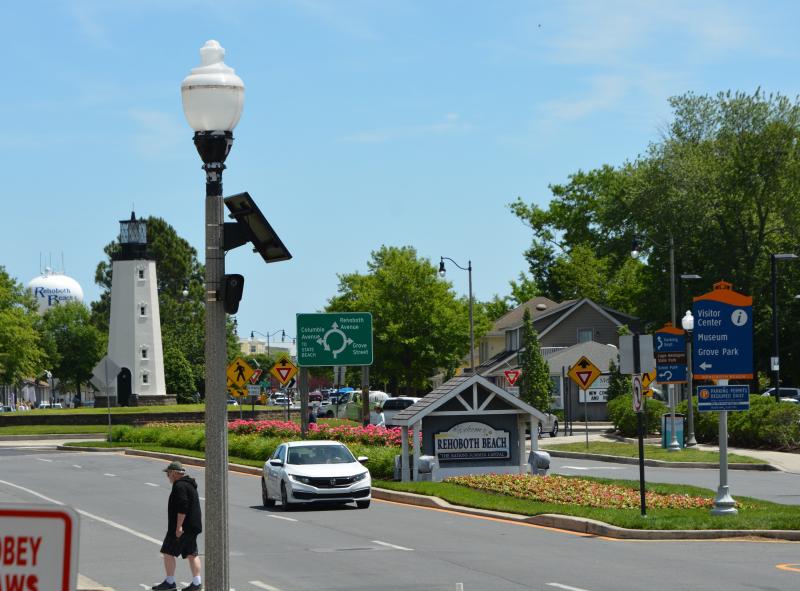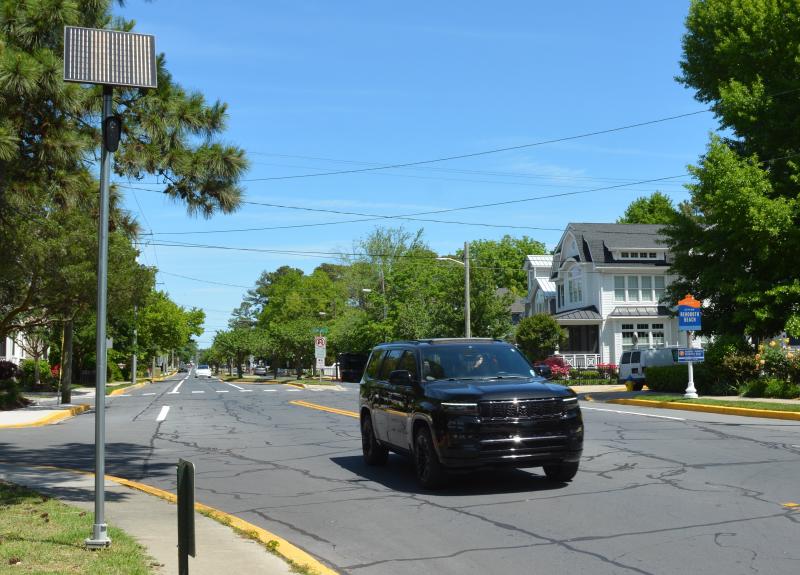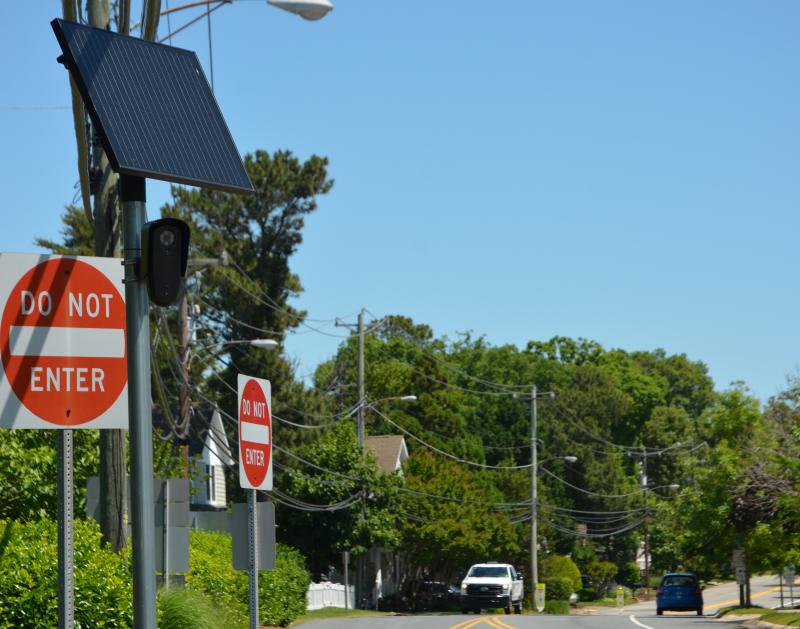Rehoboth using AI-powered cameras to track license plates
The tool box of enforcement for the Rehoboth Beach Police Department continues to grow.
Last week, in response to growing concerns of unruly behavior, Rehoboth Beach commissioners implemented an 11 p.m. curfew for minors.
Now, and this time without input from commissioners or the public, the city has installed Flock Safety license plate readers that use artificial intelligence-powered technology to identify vehicles based on make, model, color and other details. The cameras, not much larger than a smart phone, are inconspicuous and not clearly marked. The most distinguishable things about the cameras are the legal pad-sized solar panels providing power to the cameras.
Rehoboth Police Department spokesperson Lt. Mark Sweet said four Flock Safety license plate readers have been active since mid-April. The cameras are located on Rehoboth Avenue, Bayard Avenue and State Road, he said.
“The cameras are intended to provide real-time intelligence to take a proactive approach to suspect identification and, ultimately, apprehension in known cases,” said Sweet. “The system will actively search for criminal information, from stolen vehicles to amber alerts to actively wanted persons. This system is just another tool to assist in solving criminal cases that affect our community.”
According to the Flock Safety website, the system is an all-in-one technology solution to eliminate crime and keep the community safe.
The technology is used by 5,000 communities across the country to help solve and deter crime in the pursuit of safer communities, reads the website.
“Flock Safety customers own 100% of the data and footage collected with our cameras. Once captured, footage is transmitted immediately to a secure cloud server and encrypted at every point along the way. Flock Safety does not sell or share public safety data with third parties,” says the website.
Sweet said Police Chief Keith Banks brought this system to City Manager Taylour Tedder, who then made the approval.
The information gathered by the cameras is stored by Flock Safety, said Sweet. The retention period is set by the department and there is no intention to store data long term, he said, without providing a specific time frame.
The notifications to the police department are quick, but must be verified by an officer, said Sweet. All users are required to receive training through Flock Safety to use the system, he said, without detailing how many of the department’s officers have received that training.
Sweet said the system is functioning properly and meeting expectations. The system has been used to assist other agencies with investigations, but Sweet said he cannot speak to the outcome of those investigations.
Sweet was asked what happens if the camera recognizes the license plate of a car from Virginia on its way into Rehoboth that's associated with a person who has a warrant out for their arrest.
The outcome would be no different than if an officer entered the plate into a criminal justice system and discovered the same information, said Sweet. An investigatory stop would be made, and an arrest would be made if appropriate, he said.
The installation of the cameras wasn’t discussed by city commissioners in a public setting.
Mayor Stan Mills said the decision to use the cameras relates to the day-to-day operation of the city and is not policy related, which is why the camera installation did not need to be discussed by the commissioners. The police department identified the cameras as a useful tool in ensuring the safety of the community and fighting crime, he said.
In response to being asked if he’s concerned about Rehoboth gaining a reputation as a surveillance state, Mills said he hopes the cameras can underscore Rehoboth’s reputation as the Nation’s Summer Capital and help enhance the safety of residents and visitors.
The cameras were purchased for $12,000; there was no installation fee charged to the city, said Lynne Coan, city spokesperson. The annual maintenance contract fee for the current fiscal year is also $12,000, she said.
The Atlas of Surveillance, a collaborative effort between the Electronic Frontier Foundation and the University of Nevada Reno Reynolds School of Journalism, is a database of surveillance technologies deployed by law enforcement in communities across the United States. This includes drones, body-worn cameras, automated license plate readers, facial recognition and more.
According to the database, which was last updated March 7, Rehoboth Beach is the only municipality in Sussex County using the license plate-reading technology.
Chris Flood has been working for the Cape Gazette since early 2014. He currently covers Rehoboth Beach and Henlopen Acres, but has also covered Dewey Beach and the state government. He covers environmental stories, business stories and random stories on subjects he finds interesting, and he also writes a column called Choppin’ Wood that runs every other week. He’s a graduate of the University of Maine and the Landing School of Boat Building & Design.























































